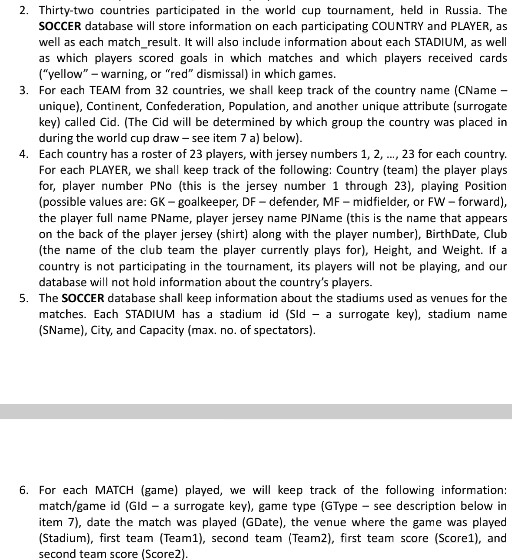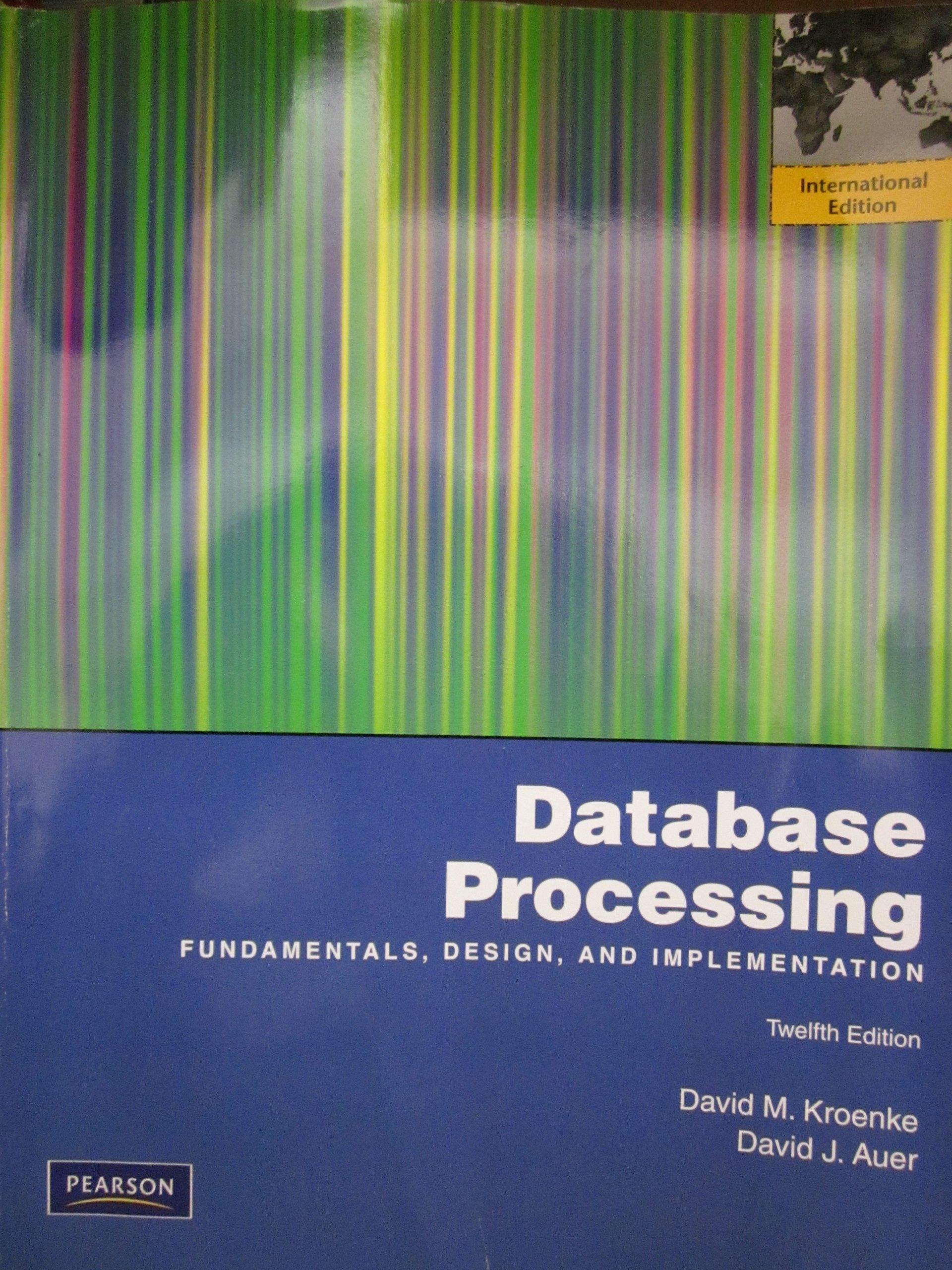Answered step by step
Verified Expert Solution
Question
1 Approved Answer
create a EER diagram for this 2. Thirty-two countries participated in the world cup tournament, held in Russia. The SOCCER database will store information on

create a EER diagram for this
2. Thirty-two countries participated in the world cup tournament, held in Russia. The SOCCER database will store information on each participating COUNTRY and PLAYER, as well as each match_result. It will also include information about each STADIUM, as well as which players scored goals in which matches and which players received cards ("yellow" - warning, or "red" dismissal) in which games. 3. For each TEAM from 32 countries, we shall keep track of the country name (CName unique), Continent, Confederation, Population, and another unique attribute (surrogate key) called Cid. (The Cid will be determined by which group the country was placed in during the world cup draw see item 7 a) below) 4. Each country has a roster of 23 players, with jersey numbers 1, 2, ., 23 for each country For each PLAYER, we shall keep track of the following: Country (team) the player plays for, player number PNo (this is the jersey number 1 through 23), playing Position (possible values are: GK-goalkeeper, DF- defender, MF- midfielder, or FW -forward) the player full name PName, player jersey name PJName (this is the name that appears on the back of the player jersey (shirt) along with the player number), BirthDate, Club (the name of the club team the player currently plays for), Height, and Weight. If a country is not participating in the tournament, its players will not be playing, and our database will not hold information about the country's players. The SOCCER database shall keep information about the stadiums used as venues for the matches. Each STADIUM has a stadium id (Sld -a surrogate key), stadium name (SName), City, and Capacity (max. no. of spectators) 5. 6. For each MATCH (game) played, we will keep track of the following information: match/game id (Gld a surrogate key), game type (GType see description below in item 7), date the match was played (GDate), the venue where the game was played (Stadium), first team Team1), second team (Team2), first team score (Score1), and second team score (Score2)Step by Step Solution
There are 3 Steps involved in it
Step: 1

Get Instant Access to Expert-Tailored Solutions
See step-by-step solutions with expert insights and AI powered tools for academic success
Step: 2

Step: 3

Ace Your Homework with AI
Get the answers you need in no time with our AI-driven, step-by-step assistance
Get Started


